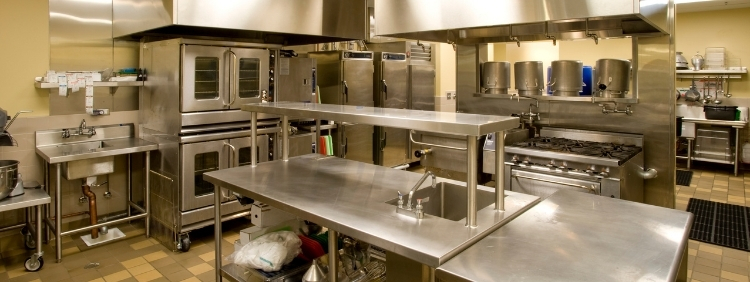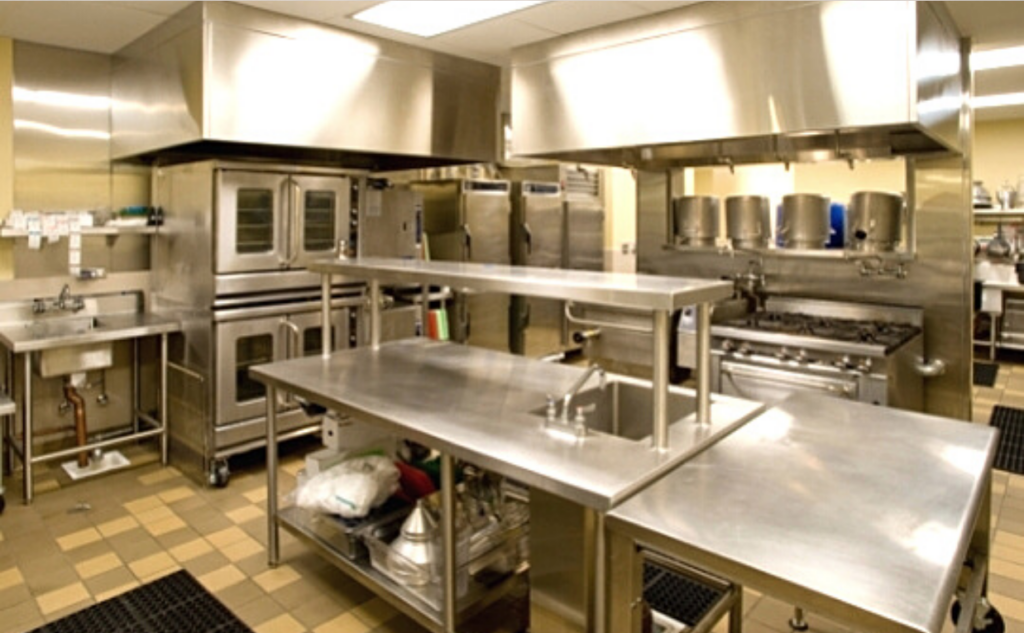
Maintaining a sanitary workspace is vital for every worker, manager and owner of a commercial kitchen. Every food service worker should practice good hygiene, but commercial kitchen employees have an even greater responsibility for maintaining a clean environment since they serve larger groups of patrons. Unlike typical restaurants, some commercial kitchens serve vulnerable populations more susceptible to foodborne illnesses and diseases spread by rodents and insects. Before you have to contact a professional for commercial pest control, you can take these steps to minimize your chances of an infestation.
Daily Cleaning and Sanitizing
Keeping your kitchen spotless is an inexpensive and effective way to prevent pest problems. Mice, rats, and insects are attracted to moisture and food waste, and most commercial kitchens produce plenty of both. A dirty kitchen is a gold mine for invaders, but you can develop a cleaning checklist to ensure everyone signs off on their work and keeps the property clean. In addition to damaging your building materials and supplies, pests can contaminate every surface in your kitchen and put the employees and customers at risk of deadly infections.
Garbage Removal
Commercial kitchens generate a significant amount of refuse every day, and improper disposal methods can leave your business vulnerable to visits from pests. Frequently dumping the trash cans can make your dumpster area less appealing to invaders. If the staff waits until a bag is full, it’s likely to bust open when it’s thrown in the dumpster. By dumping the bags when they’re three-quarters full, you can tie the bag correctly and keep the bag sealed when it’s deposited. Bags that are ripped open attract more rodents to your property and kitchen.
Food Storage
As long as you maintain the correct temperature and sanitation procedures in your walk-in and freezer, you shouldn’t have a problem with pests. Most of your supplies are refrigerated, but the goods stored at room temperature can be vulnerable to mice and insects if they’re not sealed correctly. Keep your perishable items in sealed containers and inspect your canned goods and bottles for leaks. A leaking bottle of olive oil or a puncture in a sauce bottle can provide sustenance to pests when the lights are turned off.
Heavy Equipment Cleaning
Deep Fryers, stovetop units, ovens and other kitchen equipment should be removed periodically for deep cleaning. Roll the equipment outdoors to be scrubbed or pressure washed, and clean the area where the item was positioned in the kitchen. Built-up grease and grime under heavy equipment are attractive to pests, and it’s often neglected by the staff because it’s difficult to clean with a broom or mop. Commercial kitchen pest control is easier to maintain when your team all contribute and care about the patrons’ health and safety.
Exterior and Interior Inspections
Rodents can squeeze into coin-sized holes to enter your building, and insects can wiggle under even smaller cracks and holes. You can inspect the building carefully and implement preventive pest control measures that keep the invaders away. Seal up any gaps in the walls and check the roof near the exhaust ports and hood system to ensure the flashing hasn’t deteriorated. Making minor repairs to the building is far less expensive than dealing with the consequences of a pest infestation. Pests can endanger the health of everyone in the building and ruin the reputation of your business.
Pest Control Assistance
Keeping your commercial kitchen clean can reduce your chances of dealing with an infestation, but sometimes, the location of your kitchen can affect your pest control efforts. Buildings near water sources and kitchens installed in older buildings face more challenges in keeping invaders away. By contacting a professional service for pest control and pest monitoring solutions, you can safeguard your kitchen against pests. At Truly Nolen Canada, we can develop a customized pest control plan to keep your kitchen pest-free. Contact us today.
